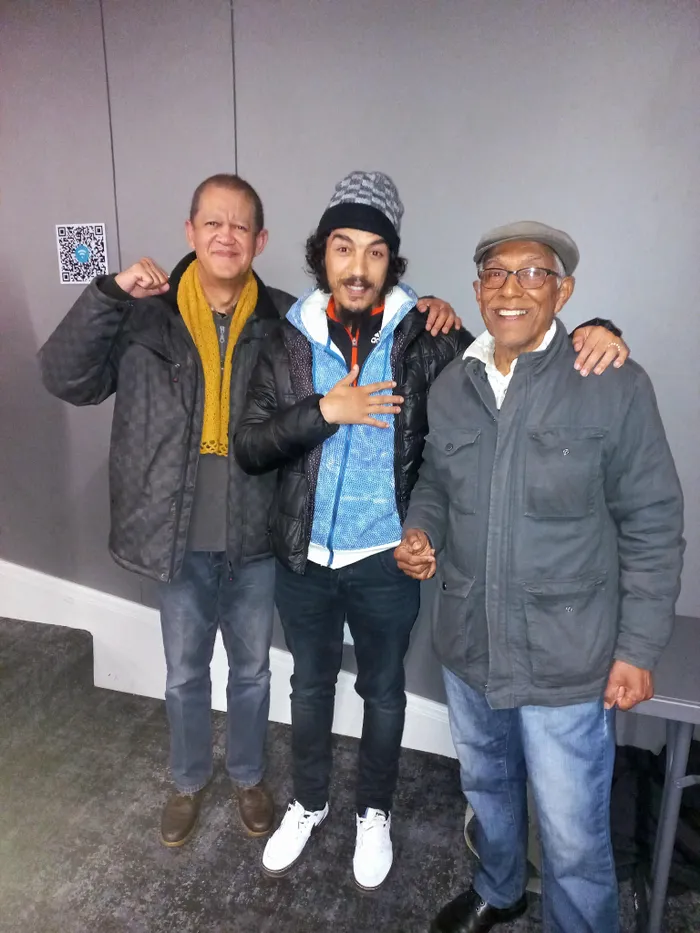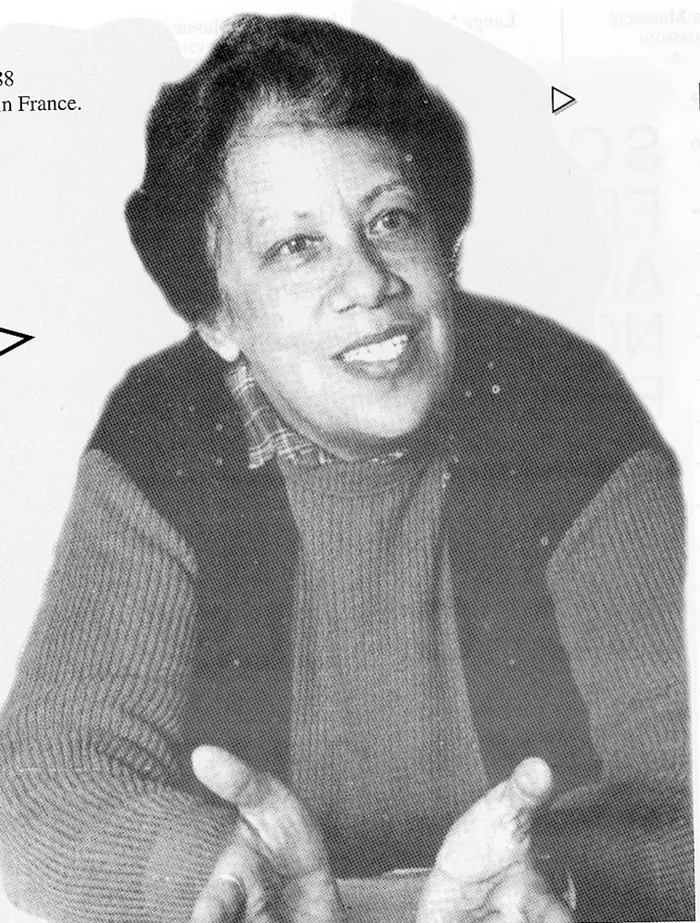Murder in Paris: remembering Dulcie September and the fight for justice

Michael Arendse, Ras Hein and Marcus Solomon
Image: Supplied
Recently the echoes of South Africa's liberation struggle resonated within the walls of Bertha House in Mowbray. A diverse gathering of community members assembled for the screening of the documentary “Murder in Paris,” directed by filmmaker Enver Samuel. This poignant film delves into the tragic, unsolved murder of Dulcie September, a formidable revolutionary woman who played a pivotal role in the fight against apartheid.
Dulcie September's legacy is both rich and complex. Imprisoned in 1968 for five years for her involvement with the National Liberation Front (NLF) on charges of conspiracy to commit sabotage, she later went into exile, emerging as the African National Congress's (ANC) chief representative in France, Luxembourg, and Switzerland. The film screening stood as both a commemoration of her life and a reminder of the importance of preserving the intangible cultural heritage rooted in South Africa’s liberation struggles. This significant event was co-organised by Surplus Radical Bookshop, Africa Unite, Adwa Movement, and EMS Productions and was especially resonant in the context of Women’s Month.

Dulcie September
Image: Supplied
A revolutionary remembered
The documentary chronicles Dulcie's incredible journey, from her early days as a student activist through her underground work with the Yu Chi Chan Club (YCCC), her time in exile, and ultimately, her assassination. Unlike many narratives of struggle that predominantly spotlight male figures, 'Murder in Paris' elevates the story of a woman who deftly balanced her various roles—as a militant, organiser, daughter, and teacher.
The screening was made even more poignant by the presence of two special guests: Michael Arendse, Dulcie’s nephew, and Marcus Solomon, the YCCC organiser and UDF veteran. Their participation anchored the event in tangible lived experiences rather than abstract historical discourse. Arendse’s heartfelt words captured audience members deeply; he spoke of Dulcie not just as an icon of struggle but as “auntie Dulcie” who brought joy and warmth to those around her. “Yet she also lived with the knowledge that her life was on the line,” he stated, urging the audience to honour the complex dualities in her life.
Solomon added an equally compelling reflection during his closing remarks. He recalled their shared experiences in secret cells and the weight of discussions they had about sacrifice. “She was fierce,” he recounted. “When others hesitated, she insisted that women were not auxiliaries but leaders in their own right. Tonight, watching her story on screen, I feel her energy again. Our duty is not nostalgia. Our duty is to keep her spirit present in how we fight injustice today.”
Heritage beyond monuments
The evening included a special 90th birthday tribute to Dulcie, underscoring the essential work of preserving and restoring intangible cultural heritage. Solomon emphasised that liberation history is not merely found in monuments or archives; instead, it thrives within community practices and memories passed down through generations. Cultural heritage worker and programme director Ras Hein passionately articulated, “Through retrieving, telling, documenting, and archiving stories, we ensure intergenerational transfer of radical consciousness.” He highlighted how heroines like Dulcie and others have been historically sidelined in popular narratives, resulting in a loss of connection to their legacies.
Intergenerational reflection
The screening was enriched by an intergenerational dialogue, which encouraged critical conversations about the significance of living memory and cultural continuity. An activist in her twenties encapsulated the evening’s sentiment, stating, “Tonight we didn’t just learn history. We inherited a responsibility. If intangible heritage is about living memory, then we become its carriers.” With the event taking place just five days after Dulcie's 90th birthday on 20 August, its timing underscored her role within the broader narrative of militant South African women.
A call for justice
As the evening drew to a close, the audience was reminded of the ongoing pursuit of justice for Dulcie’s murder—a battle that continues in the courts of France. Ras Hein urged attendees to support an online petition aimed at fostering justice, framing it as an essential element of building a just society. Arendse poignantly summarised the need for remembrance, stating, “If we allow her story to vanish, we betray that vision. Remembering her is not about the past. It is about how we choose to continue to advance the principled and incorruptible commitment to justice and freedom.”
As the lights dimmed and the audience departed, the atmosphere was not one of closure but of an ongoing journey. The screening marked yet another step toward keeping alive the intangible heritage of liberation, ensuring that the indelible contributions of revolutionary women like Dulcie September remain etched in the collective memory of South Africa.